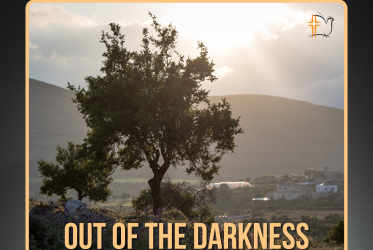By Anli Serfontein*
As the northern hemisphere slows down into its annual summer holiday mode, the German Tourism Watch says that tourism has failed many poor countries.
"Tourism has not fulfilled its promise to bring poor countries more development and prosperity," Antje Monshausen, the tourism expert of the globally-active development organisation of the German Protestant churches, Brot für die Welt (Bread for the World) has said. "The equation: more tourism = more development has not borne fruit.”
Tourism is one of the most important economic factors worldwide with an estimated one in eleven jobs directly or indirectly related to tourism. And never before have so many people travelled.
However, Tourism Watch warns that broad sections of the populations in poor countries that are popular tourist destinations still have little benefit from the tourism boom. Europeans have traditionally favoured Mediterranean countries as holiday destinations, “where the governments promoted a strong, centralized tourism industry,” Monshausen said.
"The north African countries have shown that tourism as a monoculture, is a very risky road to take. Developing countries that today rely only on tourism as an economic driver, should learn from this experience," she added. She believes that it makes the countries more vulnerable to external factors, not only terrorist attacks, but also natural disasters. Therefore it is important to ensure that social inequality and elitism are not amplified. This has been the case in some northern African countries where the elites pocketed the gains from tourism.
She said that the current crisis situation in those regions could be aggravated by the fact that tourists who are still travelling there, do it for very low prices and fewer tourists may travel to these countries. But she would like to see changes when tourism returns. “It can’t be the same old tourism like before, where in Tunisia someone like Ben Ali has enriched himself and stabilized his dictatorship through tourism. Much more it should be a sustainable tourism where the poorest are not only financially but politically part of deciding what type of tourism comes to their area.”
Earlier at the world’s biggest International Tourism Trade Fair (ITB) held in early March in Berlin where human rights, refugees and sustainable tourism and social responsibility were on the agenda, Monshausen cited Tunisia’s exemplary cultural tourism. The Tunisian government aimed to decentralise small-scale tourism and profits were to be distributed widely.
The idea was that cultural tourism should make the country unique, and that Tunisia would not simply be replaced by another sun-sand-and-sea destination. This "Tourism Revolution" was praised by everyone, but it did not pay off in the end. Many tour operators opted instead for Spain and Bulgaria rather than cultural tourism leaving the local people devoid of prospects. Monshausen warned: “Unfortunately, this is then a new breeding ground for terrorism and instability.”
As part of its Agenda 2030, the United Nations has declared 2017 as the International Year of Sustainable Tourism for Development. The UN’s Agenda 2030 has 17 development goals and 169 targets and is an ambitious plan of action for people, planet and prosperity.
The authors of a recent publication, “Transforming Tourism: The 2030 Agenda for Sustainable Development,” portrayed tourism’s relationship to sustainable development. Tourism Watch together with the Swiss Working Group Tourism and Development and TourCert are all calling for more than just sustainability. The authors “show that it is not ‘sustainable tourism’ that is to be promoted, but sustainability in tourism – which requires fundamental socio-economic changes.”
The publication notes: “The 2030 Agenda repeatedly mentions ‘sustainable tourism.’ Paragraph 33 even explicitly suggests its promotion. What is not mentioned is that promotion alone is insufficient without at the same time making efforts to overcome tourism patterns, which have been unsustainable to date.”
The plea is that “a fundamental transformation in tourism requires political decision-makers to identify the turning points required for tourism business and tourists. Mere tourism promotion is not a political strategy. What is needed is support for policies that facilitate a different kind of tourism – a people-centered tourism that will be fit for the future. At the same time, tourism players need to put an end to unsustainable practices in their sector.”
Transforming Tourism: The 2030 Agenda for Sustainable Development (English & German publications)
Offenders on the move – Global study on sexual exploitation of children in travel and tourism
Fair tourism – a matter of heart and mind
Tourism Watch website (German and English)
Press release International Tourism Fair 2016 (German only)
*Anli Serfontein is a South African freelance journalist based in Berlin and Johannesburg







